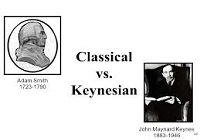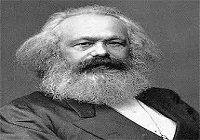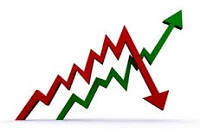Economics, it’s the science that discusses about the reasons and explains the factors that are associated with the production, distribution and consumption of goods and various services by the people. The Keynesian and the Classical school of thought represent the various types of thought process and theories used in Economics. The main difference between the two schools of thought is regarding the economic policies for which they oppose each other ideas. The questions such as whether the government should intervene in the functioning of its economy or not and whether the economic schemes made by the government should focus on immediate short term problems or should focus over the long term , are answered by these school of thought but contradicting each other’s statements.
Classical economics was developed around the time of 18th and 19th century and it included the theory of value and distribution. In this school of thought the value associated with a particular product depended on the various costs that were involved in manufacturing the product. The thing to notice was that the explanation of costs was the same as explanation of distribution. It is said that the work of the likes of Adam Smith and David Ricardo had influenced this school of thought. The theory was further developed by the works of Joan Robinson and Edward H. Chamberlain who introduced the marginal revenue curve.
Keynesian Economics was developed by John Maynard Keynes, a British economist , whose revolutionary idea changed the future of economics forever. He compelled the governments to change their economic policies by viewing his school of thought too. He worked on the causes of business cycles and as of today is known to us as the father of Macroeconomics he is the biggest and the most influential economist of the 20th Century. In the late 1930s he revolutionized the economic thinking and heavily challenged the classical school of economics on the ground of free trade and he staunchly supported the idea of government’s intervention to protect the economies from going a bust. He always supported short term solutions and had thus contradicted the classical school of thought single handedly.
Now in Keynesian economics, Keynes rubbished the Classical economics’ idea stating that the Say’s law is correct and universal. The main idea of Say’s Law was “costs of output are always covered in the aggregate by the sale-proceeds resulting from demand”, which according to Keynes was absolutely incorrect as according to him this law would be true only if the aggregate investment i.e. the total investment of the people were exactly equal to the savings done by the people individually. The classicists believe in the theory of adjustments which is to say that any complications or obtuseness in the economies will get adjusted automatically, this idea was totally not okay with the Keynesian economists and according to them adjustments such as that of price were far from reality and so the classical school of thought didn’t worked. The pro Keynesian economists were able to define variables like production and savings quite uniquely than the classicalists.
The classical school of economists believed that during the time of crisis there should be no monitory policy or framework to effect the economy, while the views of Keynesian economists was just the opposite, they argued that the government should intervene in the economy during the time of crisis and introduce various types of policies and regulations so as to make sure that the economy do not suffer. While the classicalists favored in advising the governments for making long term policies, Keynes was totally against this ideology and countered it with saying that policies should be made for short term duration. Keynes believed that people should not save beyond investments that are planned, to which the classicalists argued that the fluctuating interest rates would adjust such problems and thus the economy will keep running smoothly.
Both Keynesian economists and classical economists however had consensus on one point that said future economies are affected by expectations. The major difference among the two factions is only about whether the government should intervene in economy or not, to which Keynesian economists gave a big approbation while the classical economists gave it a red flag.
Click here for government certification in Accounting, Banking & Finance





5 Comments. Leave new
short but covering all the important points
Great work!
nice. something new for me to read.. 🙂
Short and precise. Liked it.
good work…